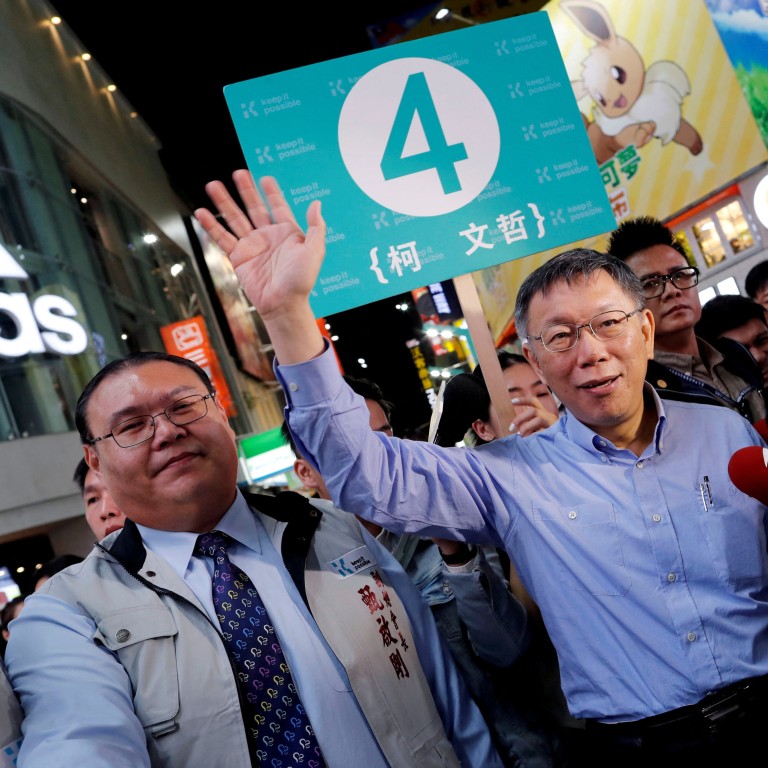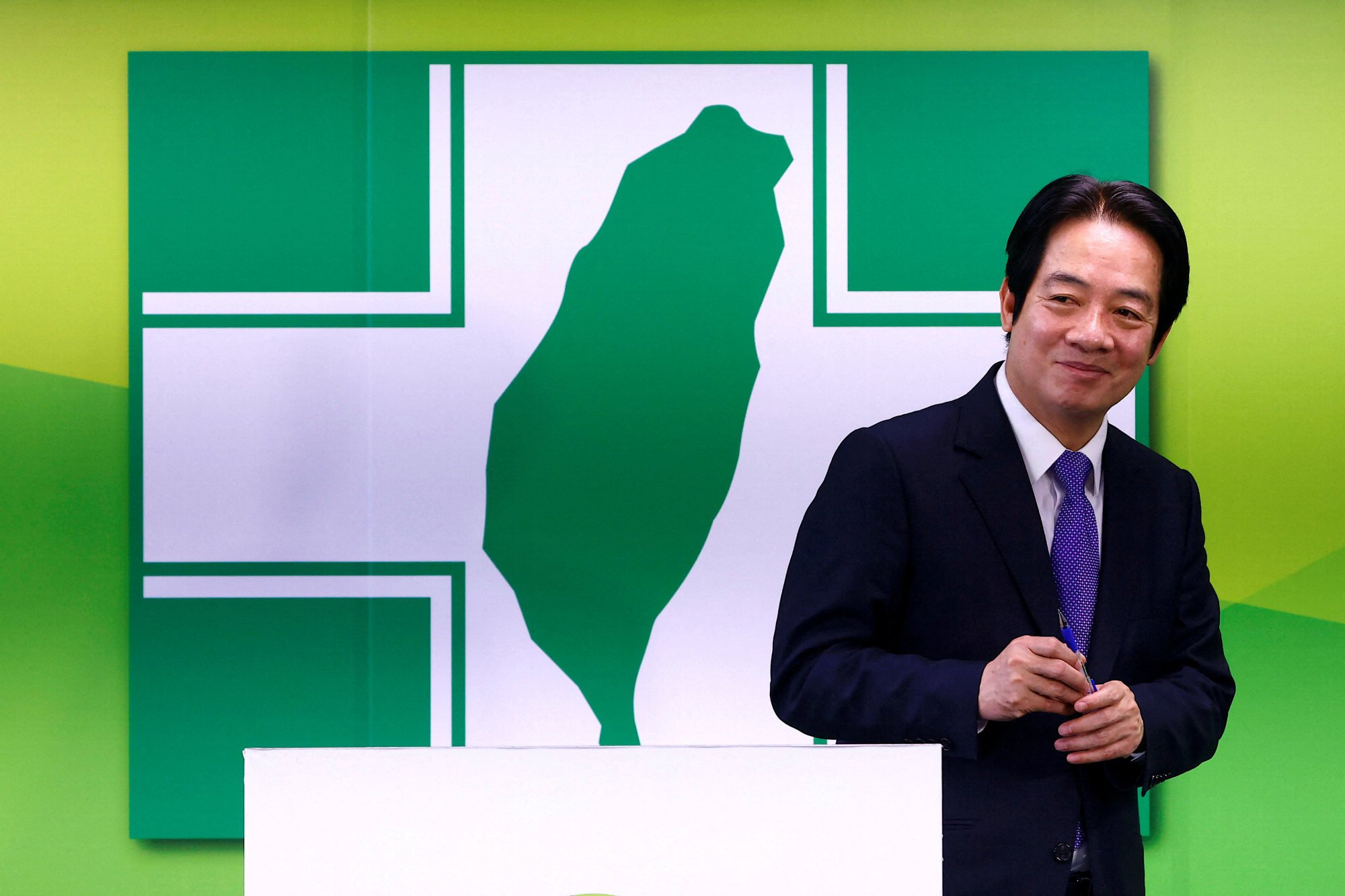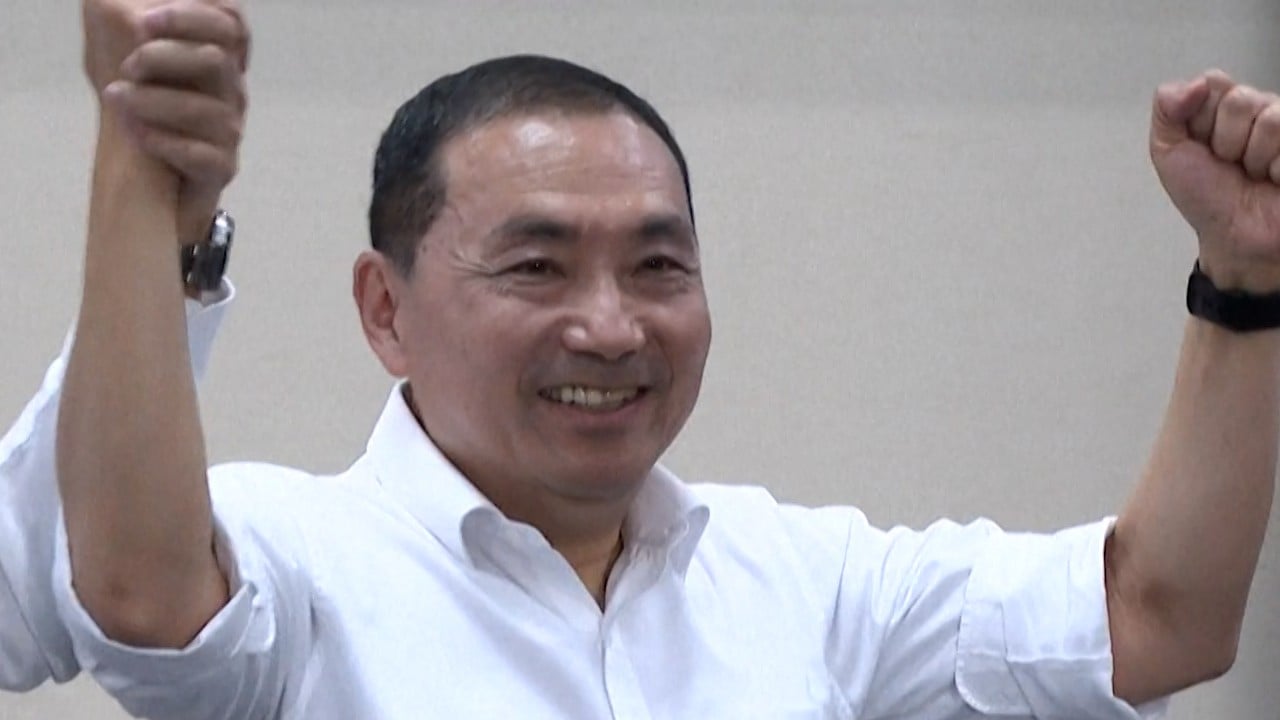
4-year-old Taiwan People’s Party poised to shake up 2024 presidential elections, poll suggests
- Relatively Beijing-friendly TPP, founded in 2019, leaves century-old Kuomintang behind in latest opinion poll
- Findings may foretell a turning of the tide in Taiwan’s traditionally two-party elections, with the TPP a ‘meaningful third choice’, observers say
The opposition Taiwan People’s Party (TPP) has risen to become the island’s second most popular option, in survey findings predicted to send “super shock waves” through major elections next year.
But the latest poll findings may foretell a turning of the tide, observers said, with the TPP’s standing likely to offer a “meaningful third choice”.
Findings released on Thursday by the Taiwanese Public Opinion Foundation – a major polling body known for its impartial stand – showed support rates for the relatively Beijing-friendly TPP had risen to 22.2 per cent, from 15.6 per cent a month ago, while the KMT lagged behind at 20.4 per cent, from 26.2 per cent.
Approval ratings for the DPP also dropped, to 24.6 per cent from 31.1 per cent in May, the survey showed.
The minor pro-independence New Power Party and Taiwan Statebuilding Party, however, saw a boost in support levels, which went up to 7.2 per cent and 6.3 per cent, respectively, from 3 per cent and 2.09 per cent last month.
This was the first time in Taiwan’s political history that three political parties had received more than 20 per cent support, according to foundation chairman Michael You Ying-lung.
“The findings carry an important message, that is there is an obvious sign of the restructuring of Taiwan’s political parties from a traditionally two-party to a three-party system,” You said.
“This definitely will send super shock waves through the 2024 presidential and legislature elections.”
Could Taiwan’s ‘white’ knight break the island’s blue-green mould?
Apart from leaving the KMT behind, the TPP was just 2.4 percentage points behind the DPP, the survey of 1,080 eligible voters across Taiwan showed.
“These have wiped out the efforts of DPP chairman William Lai Ching-te in the past six months to gain support from voters,” You said.
This compares with the 41 per cent support rate after Tsai Ing-wen won her second term as Taiwanese president in 2020. The nearly 16 percentage point slide in voter support since then translated to a loss of support from 3 million voters, You said.
Lai, who is also Taiwan’s vice-president, is the DPP nominee for president as Tsai finishes her mandated final term. But he has faced harsh criticism over the party’s handling of sexual harassment complaints involving its members.
Hou, who wrested the candidacy after a fierce competition with Foxconn’s billionaire founder Terry Gou, has come under fire for failing to swiftly address public outrage over the recent drugging of some children by a New Taipei day care centre to get them to sleep.
The KMT has also lost around 3 million voters since former Kaohsiung mayor Han Kou-yu represented the party in the 2020 presidential election, You said. The support rate for the KMT back then stood at 35 per cent.
DPP legislator Liu Shih-fang acknowledged that the sexual harassment allegations and the controversy involving a group of children being given sleeping pills were the major reasons for the fall in popularity of the two main parties, but pledged the DPP would do its best to win back voters.

“The DPP and its presidential candidate William Lai are willing to tackle all the challenges and offer the best solution to [harassment] cases in order to win back the public support,” she said.
Liu also said the rise of the TPP was not a matter of just a week or two but the result of years of effort. The recent controversies implicating the DPP and the KMT had also played a part, she added.
You said it was surprising that voter support for the TPP had surpassed that of the century-old KMT and come close to that of the 37-year-old DPP, given that it was founded only four years back.
“This means Taiwanese voters hope to have a ‘meaningful third choice’,” he said.
The TPP is headed by ex-Taipei mayor and 2024 presidential candidate Ko Wen-je, who founded the party in 2019, a year after winning his second four-year term through the support of voters who disliked both the DPP and the KMT.
During his stint as Taipei mayor from 2014-2022, Ko opted for closer exchanges and cooperation with the mainland in what he held up as the right way forward for better cross-strait ties.
He has been reported to be Beijing’s preferred presidential candidate in the January elections, mainly due to his stated belief that Taiwan and mainland China are a family.


